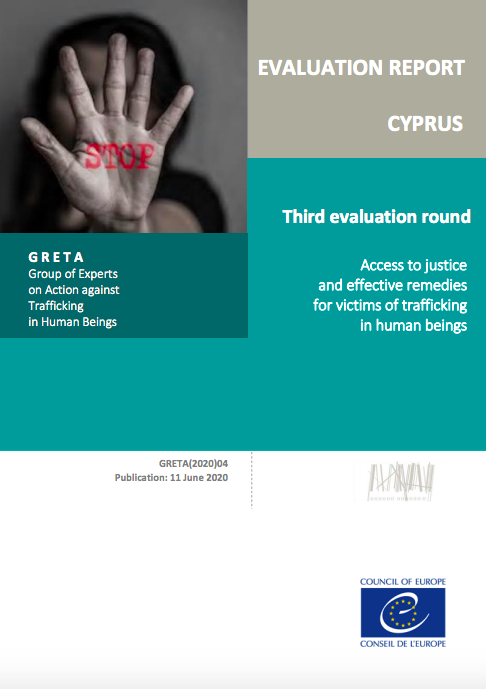In its third report on Cyprus, the Council of Europe’s Group of Experts on Action against Trafficking in Human Beings (GRETA) analyses trafficking victims’ access to justice and effective remedies and examines progress in the implementation of previous GRETA recommendations. The report acknowledges that in recent years Cyprus has taken some positive steps to improve its legislation and policies to combat trafficking in human beings. In 2019, amendments were made to the anti-trafficking legislation, increasing significantly the penalties for human trafficking and criminalising the use of sexual services of victims of trafficking. The Multidisciplinary Co-ordinating Group adopted a new National Action Plan against human trafficking for 2019-2021. Further, a National Referral Mechanism for the identification and referral to assistance of victims of trafficking was established in 2016. However, GRETA is concerned that during the period under review (2015-2019), no legal aid has been provided to trafficking victims, and only two applications for legal aid for the purpose of claiming compensation have been approved by the Attorney General’s Office. There are no examples of compensation granted by decision of a criminal court judge in human trafficking cases. Furthermore, the setting up of the victim support fund, which can be used to compensate victims of trafficking, has been delayed, and no victim of trafficking has so far received state compensation in Cyprus. GRETA therefore calls on the Cypriot authorities to ensure that victims receive specialised legal assistance and free legal aid at an early stage of criminal proceedings, and to set up a victim support fund as a priority. GRETA further urges the authorities to facilitate and guarantee access to compensation from perpetrators, including by collecting evidence about the harm the victim has suffered and the financial gain from the exploitation, as part of criminal investigations.

